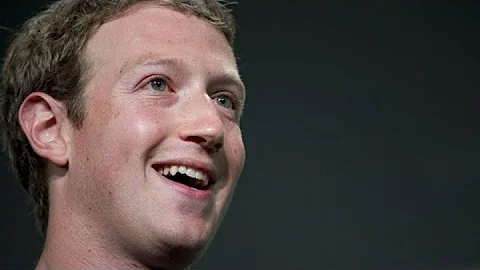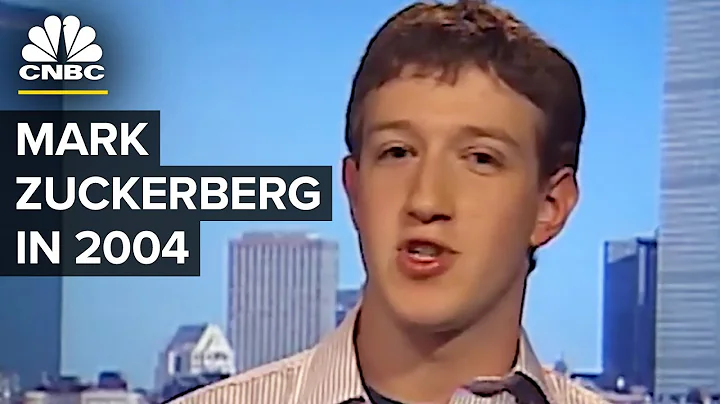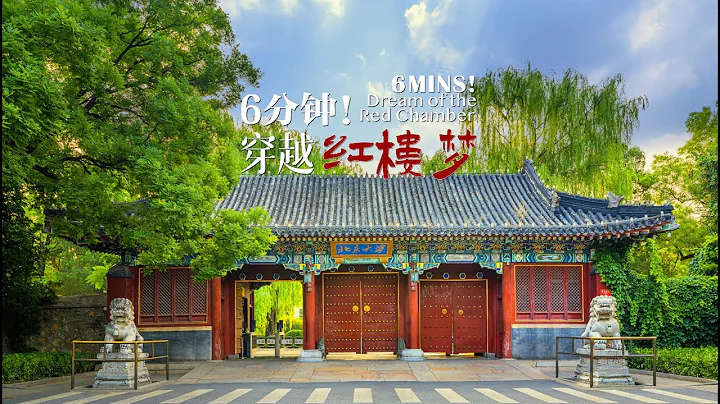At a cocktail party at Stanford University in 2005, Systrom, who was still in college, met the Silicon Valley "prodigy" Zuckerberg (hereinafter referred to as "Zuckerberg") who was the same age as him. Xiao Zha, who is famous for creating Facebook , persuaded Systrom to join Facebook before he had a few sips of wine. After consulting with some people, Systrom decided it was too risky to drop out of school and join Facebook. At that time, what the young man who would soon create the photo social media Instagram did not know was that the most difficult part in starting a business was how to attract good talents. A few days later, he saw Xiao Zha holding a sign recruiting people on the Stanford campus. At that time, compared with big-name companies like Google, Facebook, which had just been founded, was having a hard time recruiting people. A year and a half after starting
, Systrom chose to accept the $1 billion price offered by Xiao Zha and sold Instagram, which had a team of only 13 people. One of the unknown reasons behind it was that it could not recruit talents. Systrom knows very well that it seems like a myth that this 13-person team can be worth 1 billion US dollars. In fact, many positions in the company are not filled. Everyone in the company wanted to break them into two or three pieces and use them. Because the company needed to build a larger and more complete team, Systrom chose to "marry into a wealthy family." In Strome's view, it was taking the easy road. Because who would be willing to give up a good salary at a big platform to work for a company with an uncertain future? Being acquired by Facebook means he can find talent from Facebook's talent pool of several thousand people.
Employees who join startup companies in the early stages are either met by chance or are generalists who can wear multiple hats. Such people can use their own methods to solve various problems faced by small companies. However, after a start-up company has overcome the difficulties of survival and entered a period of rapid development, can the generalists in this makeshift team who are not "first-class" talents continue to be competent? What should startups do if they want to attract more specialized talent? American streaming media company Netflix and private equity giant Blackstone provide interesting samples.

Stills from " Social Network "
"Shit Sandwich": Inspiration from Netflix's Entrepreneurship
Netflix experienced a talent change in its early stages of development. In "Revisiting Netflix" (Netflix, often translated as Netflix, also translated as Netflix), which chronicles the founding experience of Netflix, founder Randolph recalled how he was on the road to carpool commuting and later Netflix angel investor Hastings came up with the idea of renting and selling DVDs online. In this book that reviews the entrepreneurial experience, the most exciting part is the details of Randolph being forced into the palace by Hastings.
In 1998, when Netflix developed to a scale of 40 people, the DVD rental and sales business improved to a certain extent. At this time, Hastings, the company's major shareholder, chose to show off to CEO Randolph, believing that Randolph was no longer suitable to lead Netflix forward alone. He hoped to join the company and create a two-person management team - Hastings as CEO and Randolph as second in command.
In one and a half years of entrepreneurial experience, Randolph not only helped Netflix complete the transformation from "0 to 1" and put Netflix on the track of growth, but also helped the company shape a distinctive corporate culture. One of them is Later summarized as a culture of "brutal candor" in the Netflix Culture Manual - Randolph hopes that employees can be honest with each other, point out mistakes, and grow together. Hastings's showdown is precisely the embodiment of "brutal honesty."
Hastings used the "Shit Sandwich" method Randolph taught him to show off his cards to him: first talk about some of Randolph's strengths, and then list his mistakes one by one - poor financing and lack of strategy. sense of direction. Finally, he added one or two words of comfort and emphasized how we can work together in the future. Hastings's frankness let Randolph know that although he was facing a palace coup and would lose control of the company, he knew that Hastings was right. Netflix's subsequent development requires a keen sense of strategic direction, strong execution, the introduction of top professional talents, and the ability to continue financing.These are all things that Hastings, who has founded and led a company to successfully IPO and then exit, and has entered the nearly billion-dollar club, is good at it. For the future of the company, Randolph must step aside.

Hastings
Randolph considers himself an outstanding talent, but he knows very well that compared with Hastings, he is still far behind. Moreover, for the development of start-up companies, especially in an era where the market is changing rapidly and VC expects exponential growth, a CEO who can raise funds and has a strategic mind is even more important. He knows that if he can help Netflix "from 0 to 1", but to make Netflix "from 1 to 100", Hastings's full participation is needed, because he can compete with Jobs, and Bayern. Soos is comparable to others.
In the book, Randolph has not one complaint about Hastings. He decided to step aside because he adhered to another principle of the Netflix Cultural Manual, which is to put the company's interests first in all decisions. History has proven that this decision was correct, even if it brought great personal sacrifice to Randolph. For a period of time after
, Randolph and Hastings had a clear division of labor. Randolph is responsible for the front office, website, marketing and DVD selection, while Hastings is responsible for building the middle and back offices needed to ensure the company's rapid development, including financial, operational and IT systems. Hastings continues to recruit experienced professionals into the company - the COO of the hard disk company Seagate semi-retired to join Netflix to take charge of operations; senior financial people replace the financial directors during the founding period, with the goal of accelerating the company's listing pace; McCord, Netflix's former chief talent officer who later wrote the "Netflix Culture Manual", also joined Netflix during this period, injecting new elements into Netflix's corporate culture.
A few years later, when Netflix went public, Randolph was just an ordinary employee. At that time, no one of the more than 40 people who started the business together stayed at Netflix. But this does not prevent Randolph from participating in the bell-ringing ceremony with excitement - because Netflix has become a big company and is on its way to a great company, even if this company is no longer his ideal company. How does
treat entrepreneurial veterans?
Netflix explained the decline of its entrepreneurial veteran with “brutal honesty”. However, for most companies, such a culture is not necessarily applicable or practical. But the question remains: when the company grows and expands, what should the veterans who started the business with you do?
Schwarzman clearly stated in his autobiography "Schwarzman: My Experience and Lessons" that if a growing company wants to continue to grow, it must attract top talents, which is what he emphasized as "ten talents."

"Schwarzman: My Experience and Lessons", [USA] written by Schwarzman, translated by Zhao Can, CITIC Publishing House, January 2020 edition
What is an extraordinary talent? They are those who can proactively identify problems, design solutions, and push the business in new directions without receiving instructions. He specifically proposed that in Blackstone, the private equity company he founded, if you want to develop new business lines, you need to pass three tests: it must have the potential to bring huge returns to investors, and it must be able to enhance Blackstone’s intelligence. Capital must be headed by a "ten talent".
However, the elderly who are the first to start a business with entrepreneurs are generally unlikely to be "very talented". How should we treat these people? Schwarzman's answer is cruel: the founder must be ruthless, eliminate old people, and make room for very talented people.
Many entrepreneurs feel that their job is to coax and deceive, letting unqualified employees work and solve problems in a makeshift manner, especially these old entrepreneurs who have helped them "go from 0 to 1". Many of these unqualified old people are talents with a score of 6 or 7, and they are also the talents that entrepreneurs are most likely to recruit in the early stages of starting a business. Schwarzman reminds that if you choose to keep these people because you are nostalgic or do not have the courage to change, the company will eventually be unable to operate normally. The boss needs one person to complete all the work, and there are only a handful of people who can stay up late and work overtime with you to achieve your career.
Entrepreneurs are faced with two choices: either continue to run a company with no future, or eliminate the mediocre team that they have pulled together and let the company be reborn. Su Shiming’s advice is simple. If you are ambitious, you must work hard to recruit nine- and ten-point talents for the company and entrust them with important tasks. In other words, if the company wants to grow, the company's talent structure must also "vacate the cage and change the birds", so that the old people who have followed the entrepreneurial journey can move their seats and be replaced by more professional and efficient talents.
The company is not a "family", it is a team that "fights monsters and upgrades"
We often use "iron-made camps and flowing soldiers" to describe military camps and soldiers. A similar metaphor applies to the relationship between a company and its employees, especially for a company that hopes to become a century-old store. Netflix, the world's largest streaming media company with more than 20 years of history, has a similar metaphor for its employees. In his new book "Eclectic", Netflix CEO Hastings compares the relationship between the company and its employees to the relationship between the team and its players. Netflix has undoubtedly made a team that is constantly "fighting monsters and upgrading" .
When a company starts its business, it is like an amateur sports team. It is not always possible to find the most professional people in every important position. Even in many cases, the most likely player to emerge is a versatile player. This is very similar to the goalkeeper of the Mexican team who was once known as a butterfly. He would also make a guest appearance as a forward at the last moment of the game.
But as a company gradually develops and grows, it stands out from the competition of amateur teams, becomes a third-class team, and enters the second-class league. If it can be listed, it may be possible to get a ticket to enter the first league. At this time, the team is still the same team, but the players may undergo earth-shaking changes. The most common adjustment for big teams is to introduce big-name stars on the one hand, and to recruit big-name coaches on the other. This is why many Silicon Valley startups bring in experienced “adults” after they enter adolescence. Facebook's "Xiao Zha" has Sandberg, who is ten years older, as the company's COO and at the helm of operations; the two founders of Google also invited senior managers Schmidt to serve as CEO and director. It lasted for ten years.
The elimination of talents within a rapidly developing enterprise is cruel. In the early stages of development, it required entrepreneurs to build launch towers that could enter the rapid development track. At that time, only a group of amateur talents could help companies quickly enter the track. But when a company has a foundation, it can attract better and more professional talents, and it also needs to attract better and more professional talents. The elimination at this time is not about survival of the fittest, but about replacing those who have been "outdated" with suitable people. This laggard may be someone who cannot meet the requirements of the new leader, or it may be someone who lacks training in the professional field.

"Eclectic", [U.S.] Reed Hastings, [U.S.] Written by Erin Meyer, translated by Yang Zhan, CITIC Publishing House January 2021 edition
Hastings positioned Netflix as The team that is constantly "fighting monsters and upgrading" is trying to pierce the warmth of the company as a family. He believes that the only way for the company to become a century-old store, or an iron-clad camp, is to become a professional team. This is precisely why the analogy of a company as a family is inappropriate. Because we cannot use nostalgia to replace the assessment of everyone's ability and adaptability.
At Netflix, everyone needs to prove that they are the most suitable person for that position on the field, and everyone needs to work as a team to help the company win the game. Managers should make adjustments to positions on the court according to changes in the situation. It is not enough to rely solely on the efforts of the players. The players who were substituted have nothing to be ashamed of. This is so that the company can go further on the road of defeating monsters and upgrading. Personal glory is not worth mentioning at all. Of course, Netflix is also willing to provide four to nine months' salary to ensure that the replaced "players" can end with dignity.
Of course, the only difference between a company and a team is that the number of players and seats on the court are fixed, but the company may create more future jobs due to development.
uses the team as a metaphor for the relationship between the company and its employees, and there is a simple "barrel principle" behind it to support it. Effectively coping with the fast-changing business environment is inseparable from team collaboration and efforts, and mediocre people cannot be tolerated in a high-performance team, because the shortest board that makes up the barrel determines the team's effectiveness.
Professor Meyer, the author of "The Culture Map", also found similar experimental results when searching business school literature. When a group of elite college students were divided into teams of four to complete a project, the experimenters deliberately placed actors in different teams. Some people play the role of slackers and pick the easy jobs; some people play the role of troublemakers; and some people are the kind of people who complain and bring negative emotions to the entire team. Experiments have shown that college students are easily affected by various negative emotions and are prone to be lazy in every possible way. As long as there are mediocre people in the team, the efficiency will be greatly reduced.
Therefore, Hastings' team management philosophy emphasizes: The company cannot tolerate the existence of mediocrity. Gathering a group of talented people together, their mutual interaction, encouragement and competition can improve the company's management and efficiency. For this reason, it is necessary to pay the highest price in the market to compete for talents. If you find mediocre people, or those who are not able to produce the best results and whose working status is average, sending them out as soon as possible with a generous breakup fee gift is the best choice.
For this reason, Netflix culture also emphasizes the "retention test": if a subordinate wants to resign, how hard will you work to keep him? If you think he is not worth keeping, you can just let him go and make room for better talents. Reflection on
: It must be good if great people gather together?
In the history of enterprise development, perhaps it should be replaced by "One company's success can lead to ten thousand bones". Of course, it remains to be seen whether this ruthlessness in pursuing “excellent talents” is universal, and whether “excellent talents” are truly stronger than generalists in the entrepreneurial stage. Most people will agree that companies need talents more suitable for the company at different stages of development. However, when a start-up company reaches a certain stage, does the introduction of high-performance professionals mean that they "go down the mountain to pick peaches"? This is a talent issue worthy of further study.
When we discuss whether the talent management experience of Netflix and Blackstone is universal, we must emphasize the characteristics of the two.
Overall, Netflix is still a high-tech enterprise dominated by " coders ". In the past ten years, during the transformation process of streaming media , it has been successfully grafted on Hollywood culture and injected new vitality into it. The elitism it upholds has its industry limitations, which are more obvious in Wall Street financial companies like Blackstone.
In addition, the gathering of talented people will bring about a series of other problems.
First, the concept of “excellent talents” is a typical elitist label. Will this create corporate people with a single culture and make companies lack a culture that tolerates diversity? After all, in a changing world, diversity becomes even more important.
Secondly, is a group of talented people really the most effective when they gather together?
In "Achievements" written by former Google CEO Schmidt, he specifically mentioned the importance of executive coaching. The most important executive coach in Silicon Valley Campbell In a company with many talented people, one of the most important jobs is to help strong managers collaborate with each other. Where talented people gather together, every manager is very strong. How to ensure that excellent people sit together and collaborate better as a team? How to ensure that every highly effective person has a clear sense of self? How to ensure that leaders are not misled by their own arrogance, have an overall view, and put the long-term interests of the company first? This series of issues requires outsiders like executive coaches to coordinate, which also highlights the weaknesses of even "ten-talented" people.
Third, even if Hastings used the metaphor of a team like a sports event, there will often be dark horse teams without stars. Premier League In 2016, a little-known team Leicester City won the championship, sparking heated discussion.Many people have raised questions based on this: Can the team become a top team if every position is filled with the best people? In other words, Leicester City at least proved that there is indeed a chance to use a bunch of non-star players to build a team that can compete with star teams. Critics would argue that Leicester's success didn't last. Analyzing from the Premier League's decades of history, it is still the big teams with a large number of stars that have a greater chance of winning.
In addition to luck, the most important thing in the mutual selection of talents and enterprises may be suitability. Sometimes things get together, sometimes we grow together, and sometimes professional people solve professional problems.
At the end of "Reviewing Netflix", Randolph made a very sober analysis of his strengths and weaknesses. He feels that like his father, he is a person who likes tinkering with things, a person who is good at helping start-ups find problems, a person who is full of fun in solving novel and complex problems, and a person who is willing to solve "from 0 to 1" problems. However, I have never tried to manage an increasingly large team and a mature company, and I do not aspire to it.

"Reviewing Netflix", [US] written by Mark Randolph, translated by Shangshu, March 2020 edition of CITIC Publishing Group
Although he is not a billionaire like Hastings, as early as when Netflix went public Financial freedom is achieved. He is therefore able to judge his own value with detachment. Titles and wealth become unimportant after a certain level. What matters are two points: What do you really like to do? What exactly are you good at? If your future work is the intersection of these two points, then congratulations, this is your "promised land" and you will enjoy it and never tire of it.
What’s interesting is that Hastings’ heir, Sardos, who has now been promoted to co-CEO of Netflix, has only two years of community college education. He is a completely self-taught film and television industry expert. Although Netflix focuses on introducing "ten talents", such ten talents can also be cultivated from personal struggle and hard work.
author | Wu Sheng
editor | Xu Yuedong
proofreader | Zhao Lin





















![Three Kingdoms MV1 - Zhuge Liang / Lu Yi [ 三国 - 诸葛亮 / 陆毅 ] - DayDayNews](https://i.ytimg.com/vi/nKu_ZFuaP9w/hqdefault.jpg?sqp=-oaymwEcCOADEI4CSFXyq4qpAw4IARUAAIhCGAFwAcABBg==&rs=AOn4CLA1WrMaCNq_MkQS-7u0v_ZgfGah-Q)